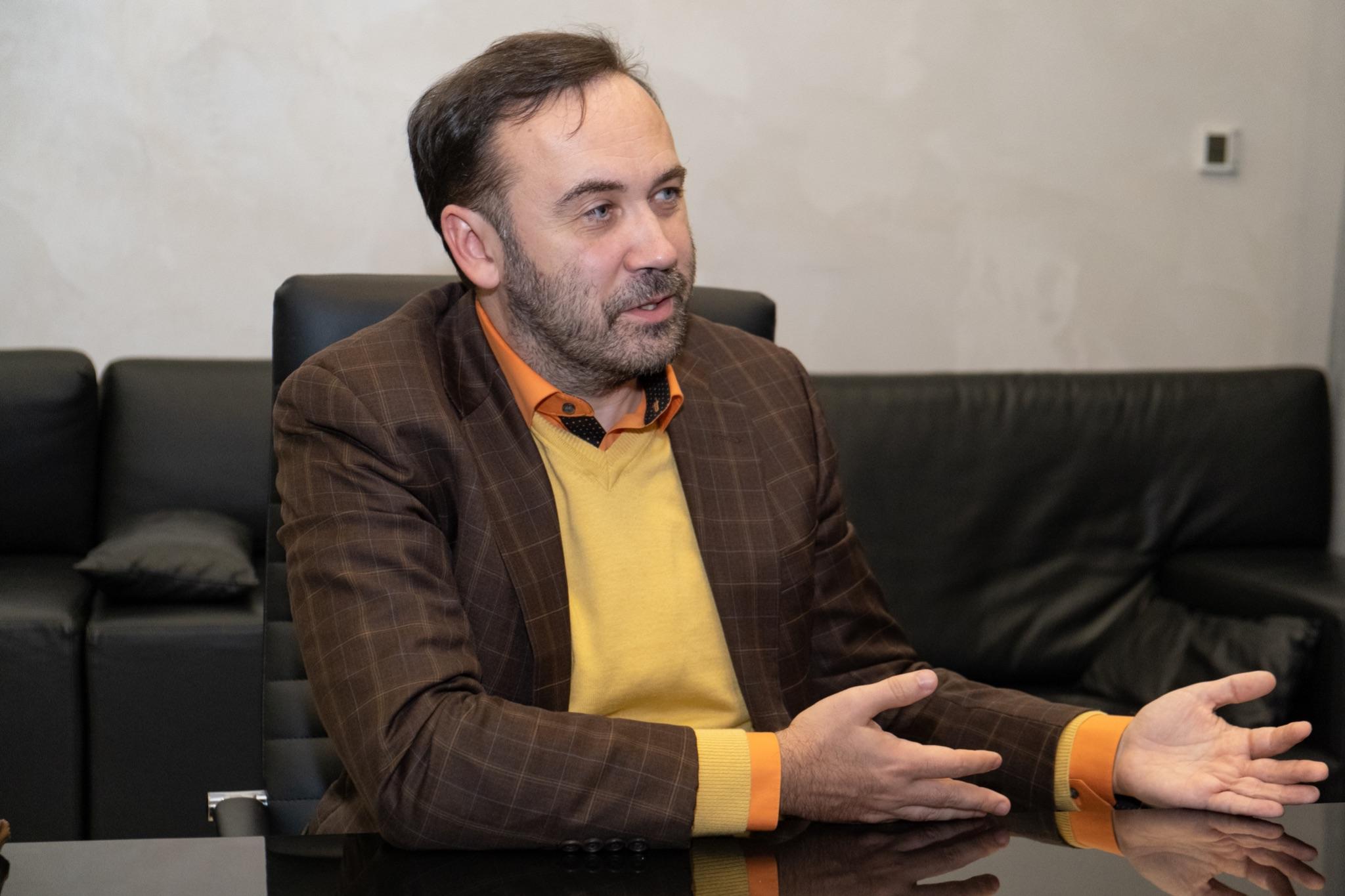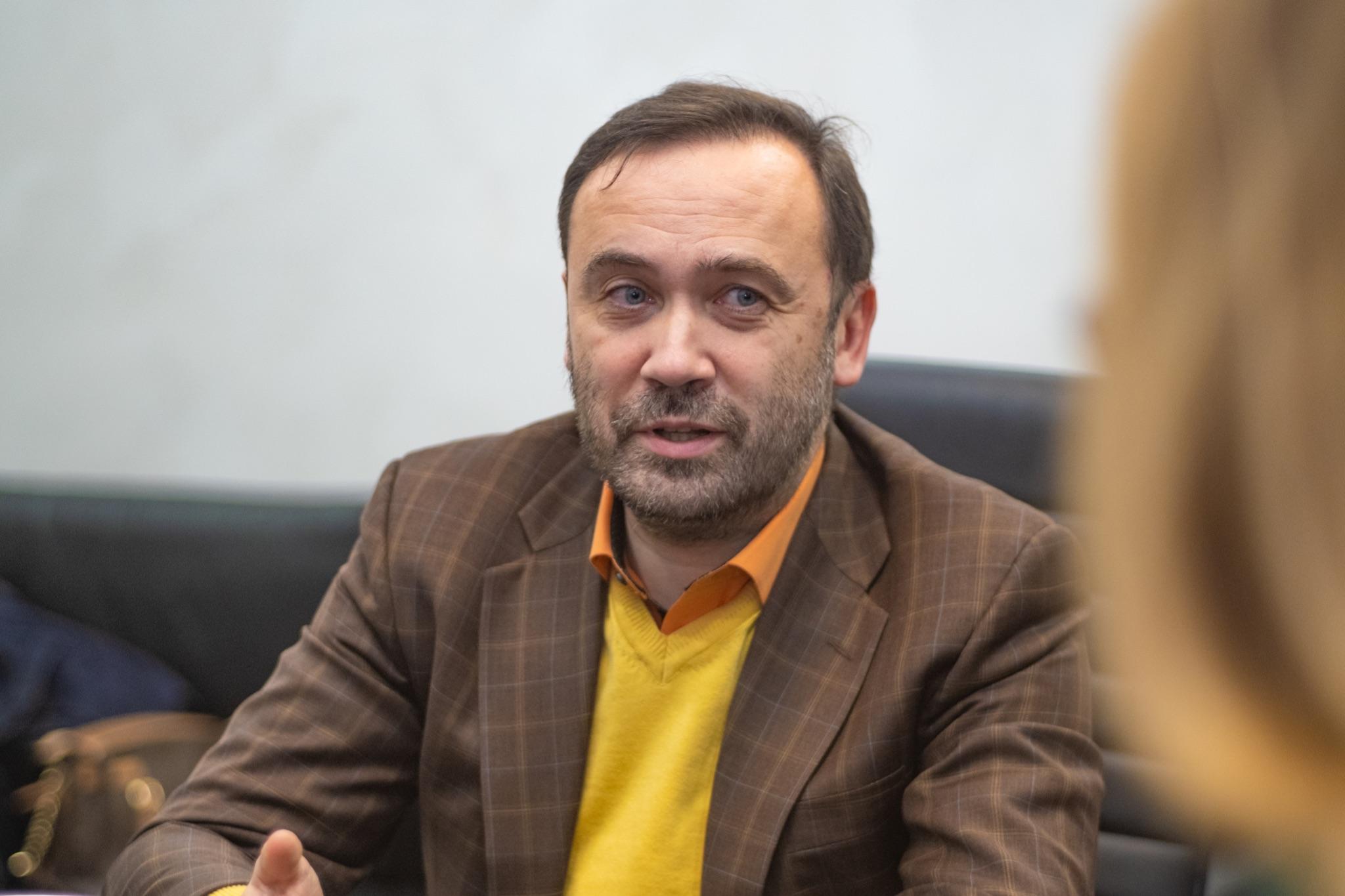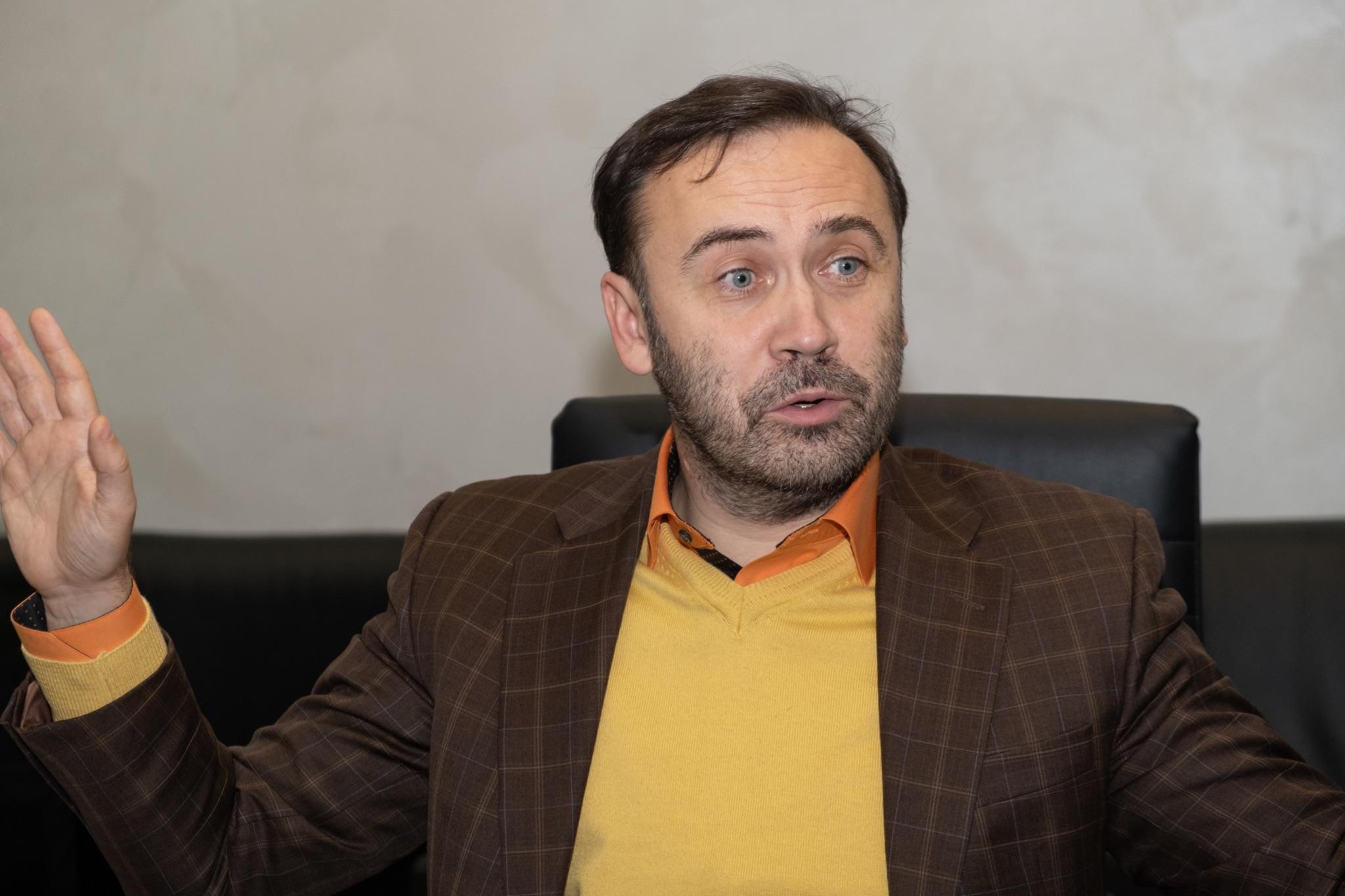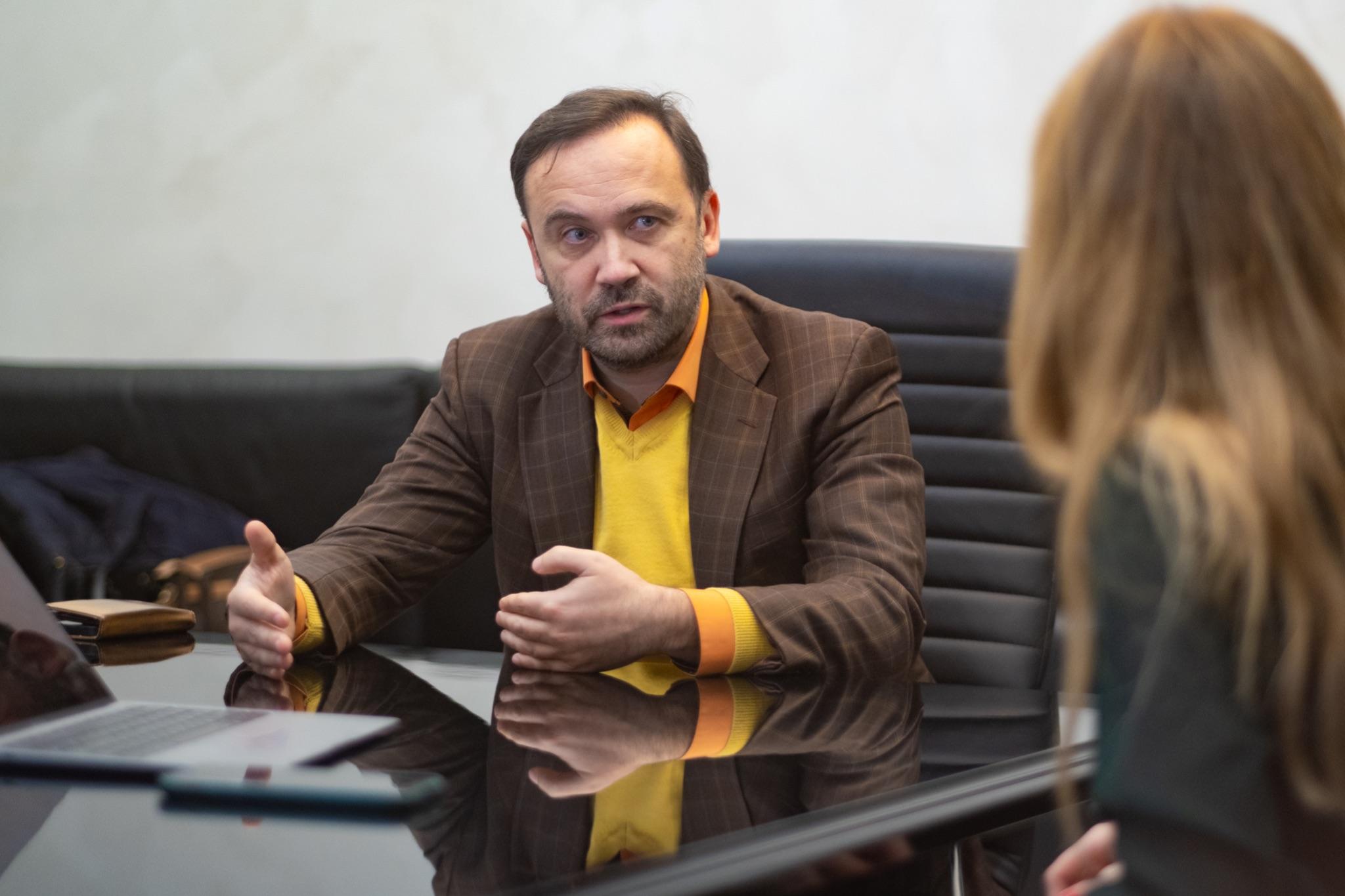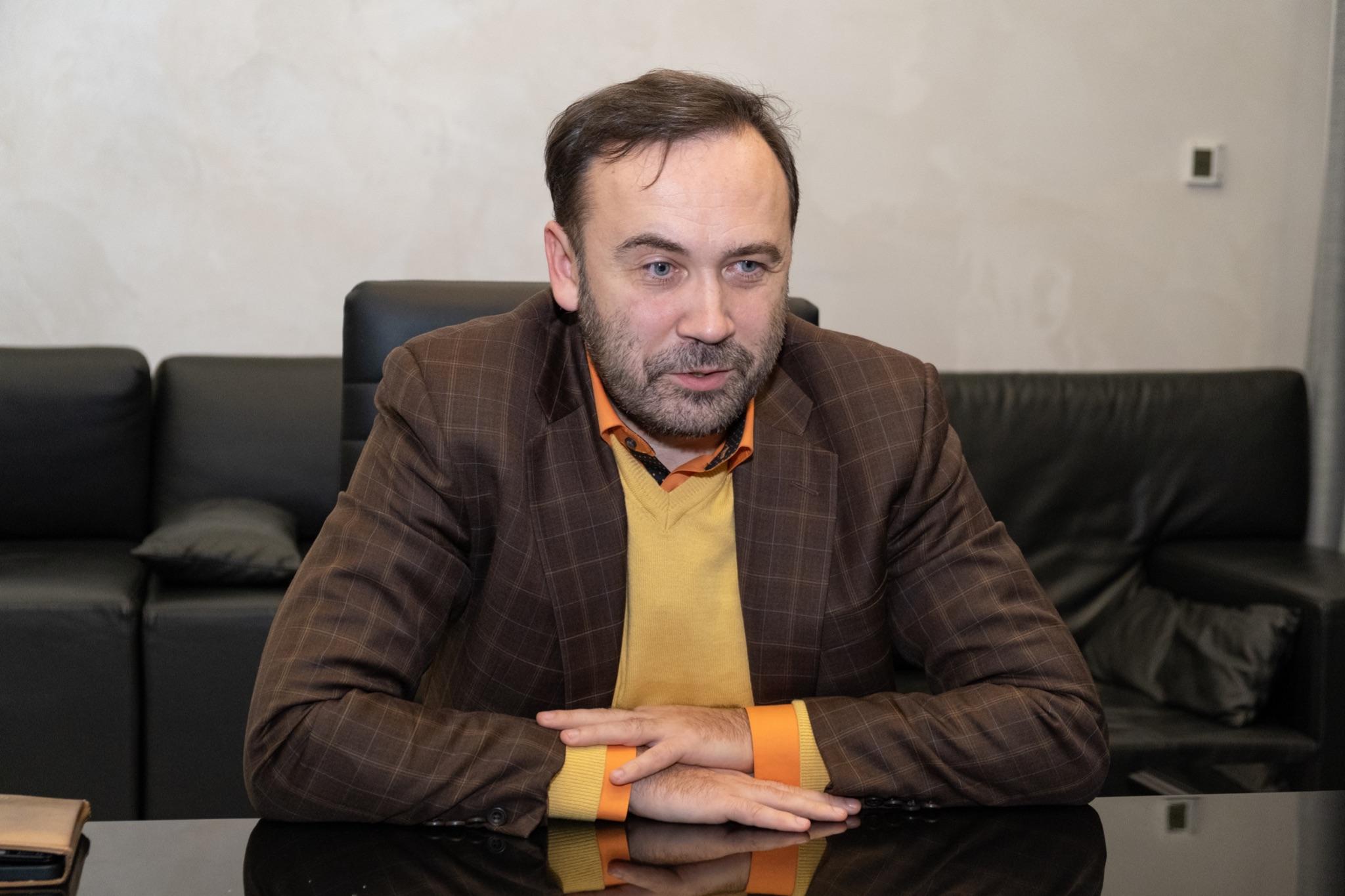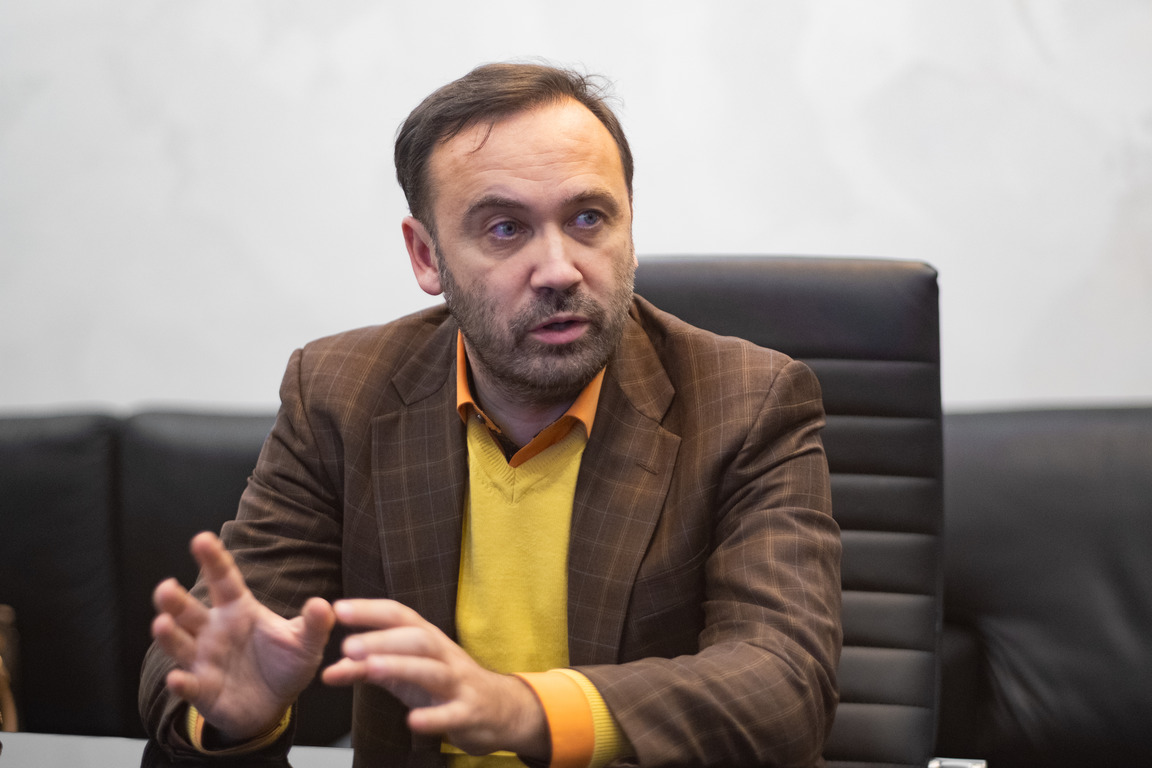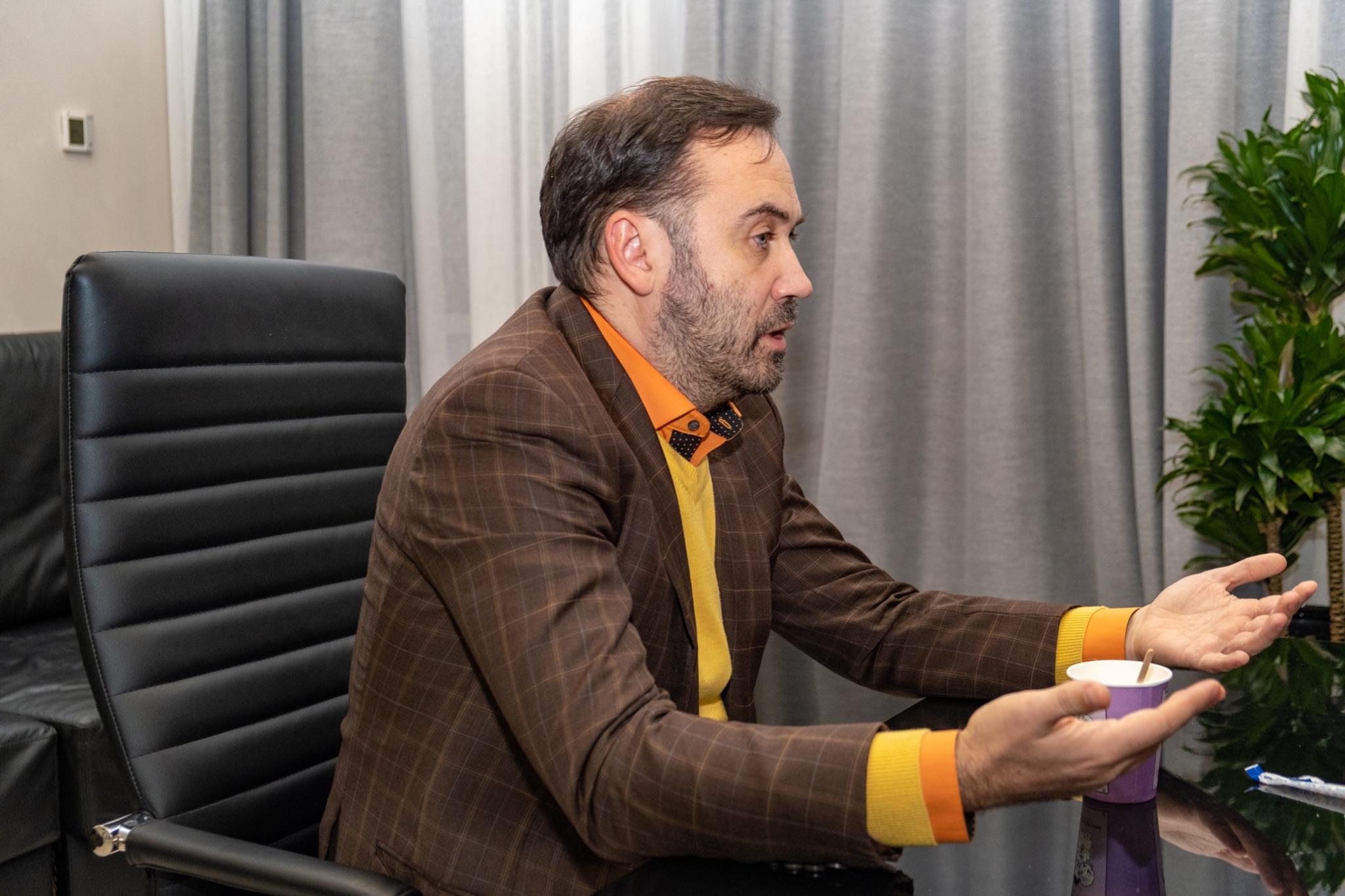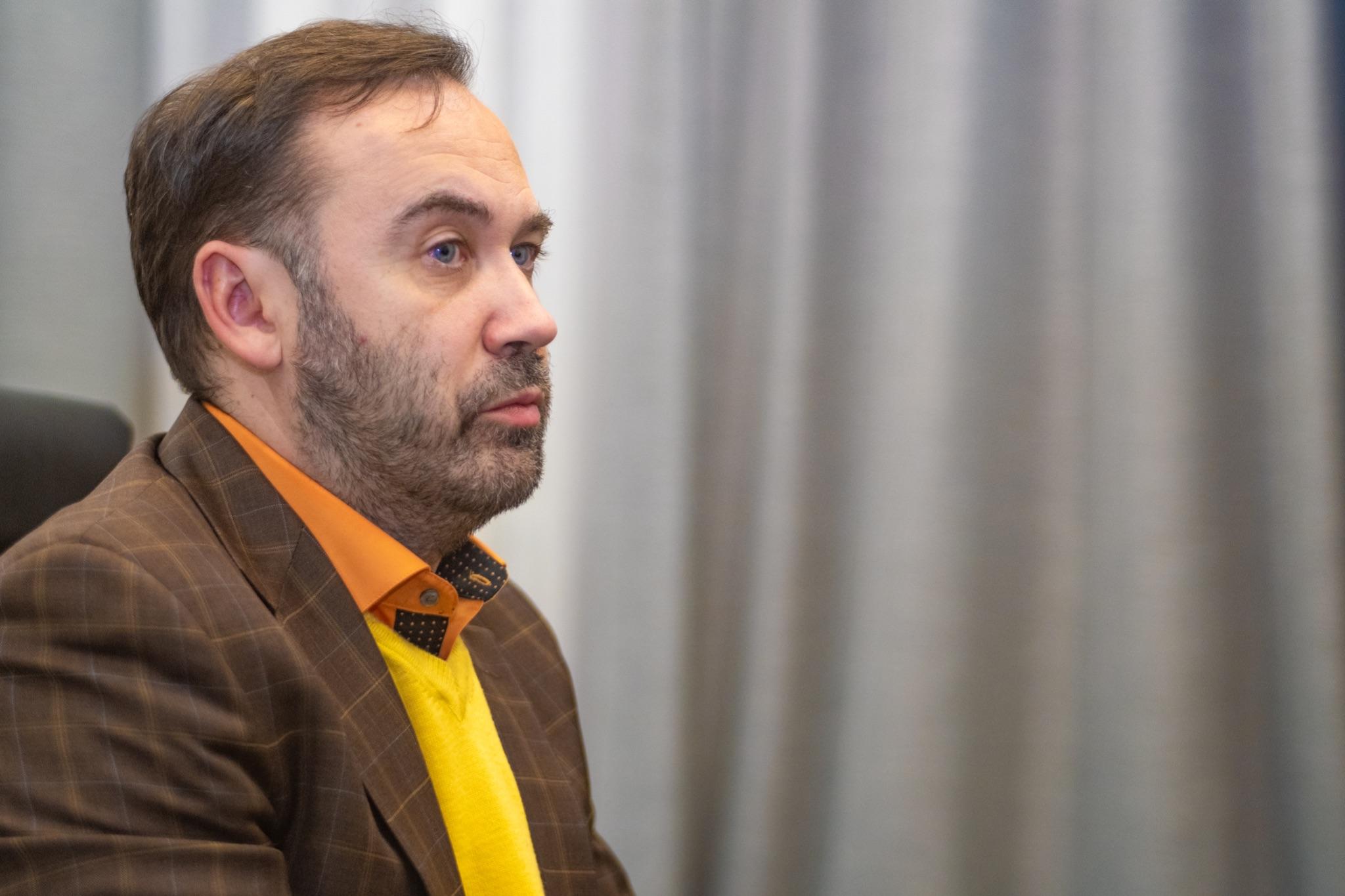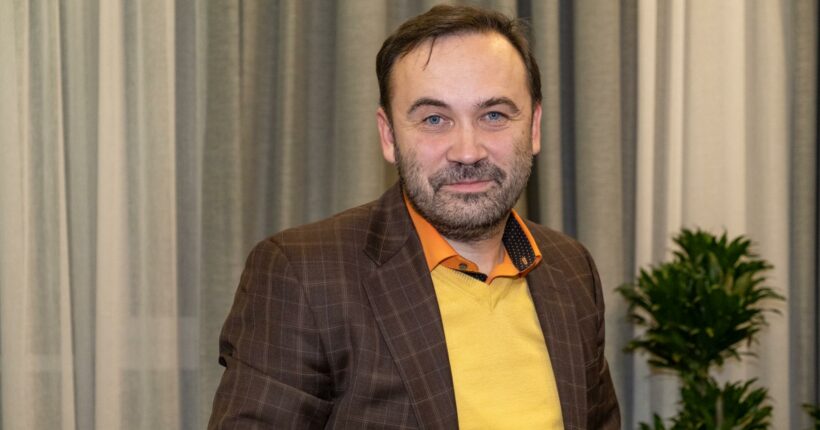
Ilya Ponomarev is the only deputy of the State Duma of the Russian Federation who voted against the annexation of Crimea from Ukraine. Today he's a citizen of Ukraine, has lived here for five years, develops business, and attracts investments to the Ukrainian economy.
At the end of November, a significant event took place that can help investors invest more confidently in Ukrainian economy development: the Trident company, founded by Ilya Ponomarev, merged with the American company Lottery.com and thus brought its investors 2-3 times more than the money tied-up. This is the first case of successful implementation of SPAC (a special investment vehicle that was used at Trident) not only in Ukraine but throughout Eastern Europe. Ilya Ponomarev talked about the details of the unique deal, as well as why this tool is needed, how to attract investors to large projects, and, of course, about politics and the Russian threat.
About Trident's case, SPACs and values for Ukraine
— Your company Trident has just merged with the lottery company Lottery.com. Why did you bet on this final investment object?
— At first, it was planned to close the deal for Ukrainian natural resources, but it turned out to be for American Fin-Tech. The company we invested in has created an innovative blockchain solution to access regular offline lotteries.
Here you need to understand what exactly we did. We created SPAC (Special Purpose Acquisition Company – Ed.). This is a certain investment vehicle where the main money is the money of American investors. I, in turn, with several colleagues, Ukrainian businesspeople, among whom was, for instance, Hennadii Butkevych (co-owner of one of the largest retail corporations ATB-Market and founder of the BGV Group Management investment company, – Ed.) invested about 12 million, then about 4 million more. And the Americans invested 200 million. This is to make the ratio clear.
The primary goal was to gain experience, try how this mechanism would work. It showed that it's efficient, everyone made good money on this; it showed high profitability. And you can create the same "vehicles" for other projects.
— Tell us in more detail what SPAC is in general and how does it work?
— SPAC is a special investment vehicle. It stands for Special Purpose Acquisition Company. Its essence is that usually when a company enters IPO, it's preceded by a chain of processes: creation, growth, the onset of a certain moment, and a certain size when its shareholders have to think about the stock exchange. We have to hire auditors, "feed" them for 2-3 years, meanwhile prepare the market, "feed" partners and consultants. This is a lot of money, and you still don't know how it will all end. In 3 years, the market may fall, it may rise. There are risks associated with this.
Therefore, when the markets have great volatility, SPACs become very popular. They initially appeared during the last financial crisis, because they made it possible to make the IPO procedure faster and more predictable through the so-called "reverse IPO." That is, we create an empty, clean company that has no business. It goes public, makes IPO, while the Securities Commission (SEC) imposes certain restrictions on the money that our company has raised. That is, this money cannot be spent on salaries, you cannot "eat it away"; it must be in a special account. The company can place it in government bonds, but the company cannot do anything else with it.
The task of SPAC's management is to find a target company, which should be listed on the stock exchange. We do either a merger or an acquisition with it. We say to its shareholders: "We have a listing and already trade on the stock exchange. And we have money; it's in the account here. You see the amount of this money, the listing, and the price of the shares. Thus, there's no uncertainty about how much your company will cost and how much money you will raise as a result of the IPO. And you will do the entire procedure of entering the stock exchange not in 3 years, but 3 months." At the same time, audit requirements, etc. are much easier to comply with. But there's a price to it: for a quick listing, the company must share a slice of its shares with us. That is, we work at our own peril and risk, invest in the deal ourselves, and don't earn commissions like ordinary investment banks, but we receive a part of the shares, the equivalent of 20% of the money we brought. Considering that the shareholders of the target company, as a rule, increase their capital many times over, it turns out to be beneficial for everyone.
— Was it the first fruit of SPACs with Ukrainian roots?
— Yes. But now there will be a lot of them. During this time, while Trident has existed, we created another project with American partners, it was called Netfin. The final investment object was a Singaporean company, a commodity trader, which also went online through the same blockchain.
Now we're preparing the third and fourth projects. They will be implemented next year. Most likely, we'll create a special investment structure, which will be invested with the participation of Hennadii Butkevych and other Ukrainian entrepreneurs. And, probably, we'll create a more or less permanent club of investors.
— Sounds interesting. But is this form of investment appropriate for Ukraine?
— I think SPAC is a philosopher's stone for Ukraine because our companies by themselves can enter the stock exchanges of Warsaw, Frankfurt, at best London (and in the latter case, more often on alternative platforms such as AIM). There is very limited liquidity, i.e. public status doesn't give issuers many advantages. Not surprisingly, there are enough fingers to list Ukrainian public companies.
And with SPACs, we can very quickly bring companies to the American NASDAQ exchange, where there is a high level of liquidity, much higher than on European exchanges.
— When you talked about the tasks of Trident earlier in your interviews, you said that initially, you wanted to invest in the Ukrainian economy in this way.
— Yes. We wanted to raise funding for an oil and gas production project in Ukraine. We then spoke with several Ukrainian entrepreneurs who were interested in this topic. Many of them were going to enter into partnership with us, but they all hesitated. The breakthrough came when we met Hennadii Butkevych. He has several oil and gas assets. I told him about this story back in 2016, but he didn't believe in the success of such an instrument, and nothing came of it. Then about a year passed. He called me himself and said: "You had an interesting idea there, stop by." And we agreed very quickly, which allowed us to start the project.
Then there was a lot of nerve-wracking. We faced a very strong "headwind" (disrupted deals, unfavorable external circumstances, including the presidential elections in the United States and the beginning of the COVID-19 pandemic, – Ed.). I don't know of any SPAC with similar adventures, and in fact, no one knows.
Recently, when we were closing a deal with Lottery.com, we had a party in New York on the occasion that half of Wall Street came to. We were like that dog that has no eye, an ear torn off, a missing right leg, and goes by the nickname Lucky. Everyone came to see the people who did it. Because first, we had to buy an American oil company, which was interested in entering Ukraine. Then, Ukrainian one. Then, the Middle Eastern one. But instead, we were in for the most real adventures, from which we managed to get out successfully, but not without a fair amount of nerve-wracking.
— Why exactly the oil and gas sector?
— It all started with Gazprom and with the war, unleashed by Russia against Ukraine. Therefore, as a politician, I wanted to pull out the poisonous teeth from the aggressor. This was my starting motivation. Plus, I'm a professional oilman and have worked for Schlumberger, the largest oilfield services company in the world. Then I was one of the top managers of YUKOS. This is the industry that has always interested me. I have always liked that it combines business and politics, even geopolitics. This industry is very attractive in this sense, in which both my passions meet equally.
— Do you consider Ukraine a promising country in terms of oil and gas production?
— I think that there are prospects, of course. First, Ukraine can be self-sufficient in gas. As for oil, in terms of reserves, no, but with gas, definitely yes. Here we don't have the Middle East, but in continental Europe, Ukraine is the most interesting country.
There are several very interesting projects, both conventional and shale. It's very interesting to work with the latter. In Europe, only Poland has some experience, but more negative than positive experience, for geological reasons. When the shale gas story began in the United States, hundreds of wells were drilled to be successful. And in Poland, only 29 were drilled… However, there are difficulties with the rocks of the oil-bearing strata. Therefore, the boom that had begun in the Polish oil shale industry has so far ended in nothing.
In Ukraine, there's the Olesko group, similar to the Polish deposits, in the country's west. But there are other objects by the properties of reservoirs, including such a large one as the Yuzivska gas field. This is in the eastern part of Ukraine, near Sloviansk. It is especially important to start work as soon as possible here, on the territory liberated from the invaders. In the end, war becomes possible because of the unsettledness of people, because of poverty, because they're looking for a better life, unhappy with the way they live. And this is a space for manipulation. Enemy propaganda begins to easily sway this story, especially when Russia is pulling in one direction, and its oligarchs do in the other. And we get what we get in the end. And if everything was good there, there would be work and money…
About rare earth metals, the vision of Ukraine's success, and how to attract investors
— What are your plans for the near future?
— On November 1, I took up the duties of a member of the board of directors of the Ukrainian company BGV Group Management, in charge of the investment direction. Previously, I did this voluntarily, just helping and advising. It will now become a permanent job. First, the main priority is everything related to minerals. BGV has the largest portfolio of mountain natural resources in Ukraine. And this is in the most correct, in the most trendy, promising direction of the "new energy." These are graphite, rare earth metals, uranium, beryllium, zirconium, titanium, and precious metals. Everything you need for a modern economy. The group's business is based on the vision of Hennadii Butkevych, whom I fully support and want to help attract external funding.
Probably, we'll create a single business ecosystem: direct investments in production, and through SPACs, we can invest in complementary businesses that complete these natural resources. That is, this is how we can invest in businesses for the production of batteries, electric vehicles, and other things related to the newest economy.
— How large are the investments in these projects?
— Investments of Butkevych's funds have already exceeded $150 million. But this is still not enough to put all its assets into operation because, for each object, you require investments of several hundred million. Therefore, on our own, we can bring this business to an investment state; when the project gets on track, then we want to work with respected international partners who would have a name and reputation in the market. First, with American and European companies and funds, with which we could develop these deposits together. This is our top priority.
— It all sounds great. But there are certainly some risks. And if everything is so great, then these risks must be great too. Tell us about this side of the coin.
— If we talk about the activities of the BGV group, then the main risk here is geological. We can talk about cool resources as much as we want. And they may even be there. You can touch the lithium in the ground; drill a well. When it comes to whether it can be used in a specific product, it may be unusable, or it may be too expensive to extract, or some steps may be taken by the government, as a result of which it becomes inconvenient for operation, or competition with other countries can crash prices. These are the risks that we must assess.
But we believe we understand well what we're doing. And these risks, accordingly, won't work. The essence of Butkevych's vision is that he understands Ukraine, believes in it and knows how to take risks here.
— That is, you will attract investors' funds to the development of minerals, not through SPACs, will you? How are you going to interest them? Although Ukraine is working to make the investment climate comfortable and safe, many investors are still afraid to go to Ukraine. How are you going to work with this?
— I very often answer the question "What harms the investment climate in Ukraine?" The standard answer given by officials and politicians is that we need the courts, law enforcement system, laws, etc. to work normally. I'm sure this is what people say who have little understanding of how investors think.
Courts and laws are all good and necessary. Still, the main thing that an investor needs is that the person with whom they negotiate puts the money where their mouth is. The predictability of their business is important to them. No matter how cynical it sounds even if it's predictable corruption or predictable racketeering, you can work with them if the bribe-taker does what they took the money for.
This is the main thing that Ukraine lacks. You agreed today, and tomorrow you renegotiate because it turned out that the person who promised you something yesterday didn't mean it at all. Hennadii Butkevych's real immense advantage is that he is a very rare person in Ukraine who puts his money where his mouth is. And it's worth a lot.
He didn't participate in privatization, doesn't participate in politics, there's no dirt on him, he cannot be accused of anything. He's just a rich man who did everything with his work from the very beginning. And it's a matter of great respect. He even left the police because corruption risks arose in the law enforcement system, and he didn't want to participate in this. And people see it and take it with great interest. Therefore, I never had any problems in the West when I spoke about Butkevych as a partner. Many other Ukrainians are treated in a completely different way, not even always fairly.
— What other instruments for attracting investments will be used?
— As a member of the board of directors, I will also help BGV build internal investment skills. The company shouldn't have a mega-investor inside it. But it should have a good interface to professional investment banks and international investment funds. It shouldn't turn into an international investment fund. However, we want to create a joint venture between our Trident team and BGV, a full-fledged investment bank, which will be called BGV Trident Capital and will operate on the open market.
That is, it will not only serve BGV, BGV will not only be serviced by BGV Trident Capital, but it will also work with other companies in the market as well. We want to combine two advantages: on the one hand, reliability and a strong base represented by the BGV group and Hennadii Butkevych, and on the other hand, our knowledge, experience, connections in the international financial markets, which we have shown through SPAC activities.
— Will this activity be directed to the domestic Ukrainian market?
— Of course, it will. These will be services for Ukrainian companies that want to raise capital here, that want to go to the West, as well as for Western investors who want to find investment projects in Ukraine.
— What exactly will the investment bank do?
— Investment bank is an investment advisor. This is the structure that organizes deals, brings people together, makes a deal plan, its mechanism; all that is needed is developing and helping to glue this deal.
— When, roughly, do you plan to launch this project?
— The decision was made on November 1. There is an administrative period ahead when we'll need to create some kind of basic infrastructure, but I think that we will start working in 2022.
— You wrote a lot about the fact that you're already starting the third SPAC and hope that you will make a deal in Ukraine. What will the third SPAC be about?
— While we don't have the right to say what it will be exactly, we can only talk to investors about the general direction. We are looking at the direction of high technologies and the Ukrainian market. We have a very strong team of people with a great reputation in the industry. But it will become noticeable when we go public, and I think that this will happen in late January, early February.
However, these are only plans. From my experience with Trident, I know that plans don't always work out on time, although the path has already been trodden; I hope it will be much easier further.
On Russia's threat, voting on Crimea and changes in Ukraine
— Just a week ago you said that Russia wouldn't attack Ukraine because it's not interested in it. But now the entire media space is seething with news that our intelligence has found out that they're going to attack us near the border. Has something changed? Is this a bluff or, in your opinion, is there really some kind of escalation threat?
— There's a great interest of a large number of people to make waves. Why did Putin do this initially? For one reason or another, he needs to clang his arms and needs to be talked about. And he is doing everything possible for this both through the Russian media and his agents in Ukraine; he says in every possible way that Russia will attack now. Why does he need it? This is a different question. You can make assumptions. We won't get into his head. We're not psychiatrists.
I think that, first, he thinks that now is a good time to push Biden. He adds fuel to the fire of Biden's political opponents, who point the finger at him and say: "Oh! You're weak!" He plays American hawks in that sense, not pigeons. By doing this, he weakens the current American leadership and forces it to enter into some kind of negotiations. I suppose that its main goal is that the West, in exchange for non-aggression against Ukraine, would close its eyes to the impending takeover of Belarus.
On the other hand, the German government is forming. And Putin, as a security officer and a street kid, believes that the stakes should be raised. This is his universal modus vivendi; all the time that he is in power, all twenty-one years he acts like this. He always raises the stakes. He never tries to act as some kind of diplomat. On the contrary, Putin, as a judoka, always tries to provoke his opponent to take the first step and make a mistake.
I think Belarus is his task, and this differs from the previous escalation in the spring. In the spring he had fears that Ukraine would move troops to recapture Donbas and, it was necessary to show that they will act in response.
Now, I think the motivation is different, although the actions are similar. They're similar, but they differ in the way they're covered. In the spring, there was a feeling that their military training wasn't particularly advertised. But now they advertise these troops so much! They don't do this when they're about to attack.
But as for Ukraine, here we also have a lot of people with big stars on their shoulder marks, who must first unleash the threat, and then heroically overcome it: "They didn't attack, because we keep the border locked. And if it weren't for us, they would attack." Plus, there is still political opposition in the form of Poroshenko and other forces. They have the same interest here: that of Poroshenko, that of Medvedchuk, who are promoting the simple idea that Zelenskyy is not coping with a peaceful settlement and is generally an incompetent commander-in-chief. And since peace was the main pre-election promise of the incumbent president, this is what presses on his rating.
— You said that often Putin needs a demonstration of force to provoke his opponent into some erroneous action. What in this case would be an erroneous action on the part of Ukraine? Where can we stumble now?
— An erroneous action is to be afraid, fuss, succumb to blackmail and pressure. We shouldn't frighten ourselves and the population with public attention, but remind our Western partners about the Kremlin's threat and aggression: "You see what scoundrels are," so that they are closer to us. However, it's also important not to go too far, because, unfortunately, when Surkov spoke on this topic that the West was beginning to get tired of Ukraine, he was right. The West is tired of Ukraine and too many problems aren't good for us. We need to alternate some difficulties with some successes. Any politician loves to report results. Everyone wants to show that they helped Ukraine and that something good happened. And when they help, and the news field shows we're up the shit's creek, well, it's somehow not very good.
— What do you predict for the regions? What will happen to Belarus, to Ukraine?
— I think that even though the final geopolitical (one might even say, historical) goal of Putin is the restoration of the union of the Slavic states, the former USSR, now Belarus will pressurize. He needs to cope with this issue by 2023 and move to the chair of the leader of the united country, removing Lukashenko from the helm. So, for now, nothing new will happen to Ukraine in military terms. I think that Putin's strategy is to let us stew in our own juice; that we will cope with the destruction of our country, and we just have to wait… Well, of course, along the way, he will continue to do everything possible so that Ukraine doesn't develop.
— What about Ukrainian politics? Are you still planning to take part in it? Still, the level of attracting investments is highly dependent on political decisions.
— No, neither I nor the business structures where I'm engaged in attracting investments, are not engaged in politics and don't plan to. I'll explain why.
First, if you paid attention, then I rarely speak about business. I believe that money loves silence. On the other hand, I talk with great pleasure on political topics. I believe that the level of fame in a country like Ukraine is a plus and a factor of protection from various attacks. But mixing business and politics is unacceptable. If you're involved in politics, you must give up doing business. This combination always leads to a conflict of interest and, as a result, to a variety of dirt that we would like to avoid.
I also have my Russian experience, when I saw this conflict and was forced to make a choice. In Russia, when you are involved in opposition politics, your state will "help" you to stop doing business. When I was just starting, back in the early 2000s, the FSB called all the counterparties that I had, with whom I had at least some business contacts, and said: "You don't need this comrade, otherwise we will be interested in you." And they, one by one, broke off all relations and said: "You, of course, are a good guy, but we don't need problems." So the state helped me to make this choice.
At the same time, entrepreneurs shouldn't stand aside from the transformations taking place in the country. They have experience, ideas, and resources that should be used to help promising politicians who would take the helm of management and could build the very transparent, understandable, and neutral rules of the game by which business would develop.
— You were the only State Duma deputy who voted against the annexation of Crimea to the Russian Federation. During the voting, did you realize that you would be the only one?
— Yes.
— Why were you specifically against, and not abstained, as did three more of your colleagues?
— If we all didn't vote, then history would've gone down that there was a unanimous vote. The fact that someone didn't vote didn't change the numbers; 445 would've been "for," 0 would've been "against," the abstained would've been 0. That is, not voting, going pee at a key moment didn't solve the problem of disrupting the image of like-mindedness.
There was no point in abstaining because in terms of the consequences from the authorities an "against" vote is the same. But it turns out that you cannot express yourself, you cannot decide whether you are for or against it. It's kind of silly.
I considered it extremely important for relations between Ukraine and Russia in the future that the vote wasn't unanimous, it had to be disrupted. If someone else was going to vote against it, I might have doubted and would have sat out the key moment in my city of Novosibirsk, where I had mayoral elections. But since I knew for sure that no one would be against it, someone had to do it.
— For sure, some people also didn't support the vote, but voted in favor, like everyone else, out of fear. You even said in some interview that they approached you afterward, saying, "Wow! Well done! But I couldn't." Surely now the Russian government has people who don't like the situation but do nothing and have their reasons. What would you like to tell them?
— I would like to tell them what was written by either a Russian or a Ukrainian writer, whom we are at odds over, Mikhail Bulgakov: "The gravest human vice is cowardice." And I completely agree with him.
Newsletter
Digest of the most interesting news: just about the main thing





